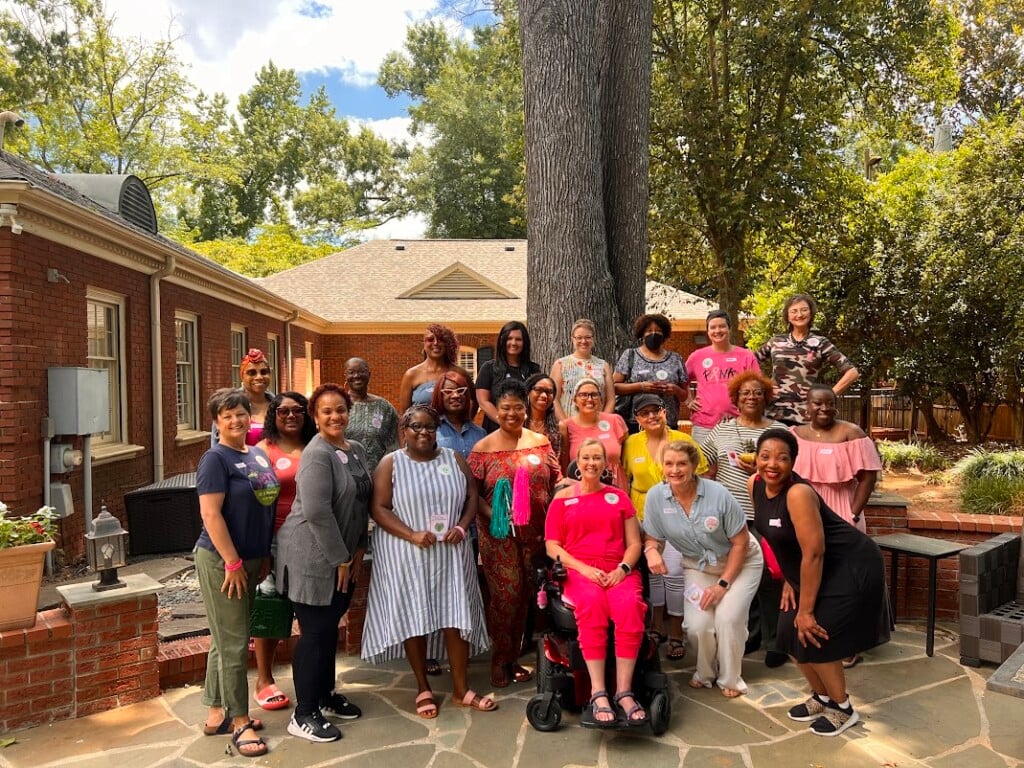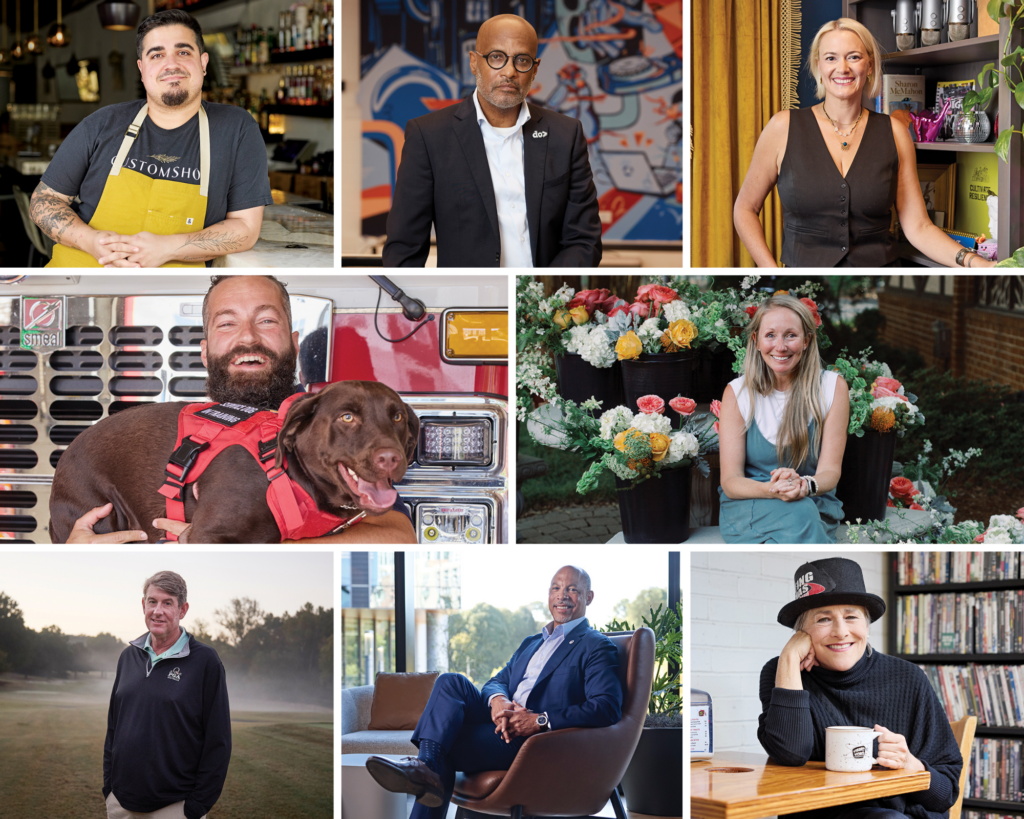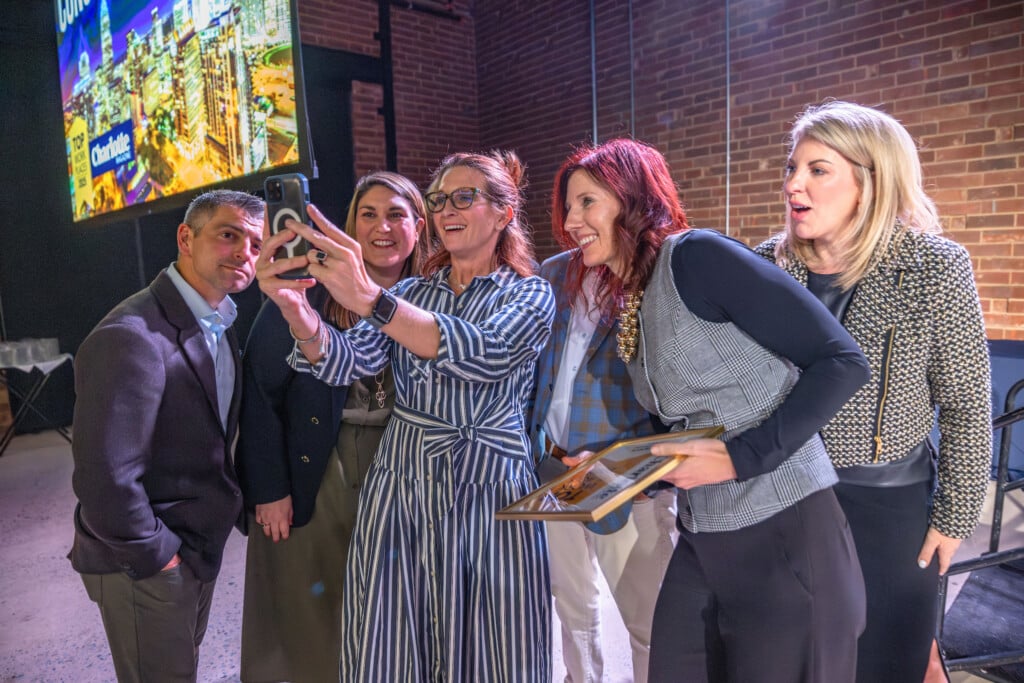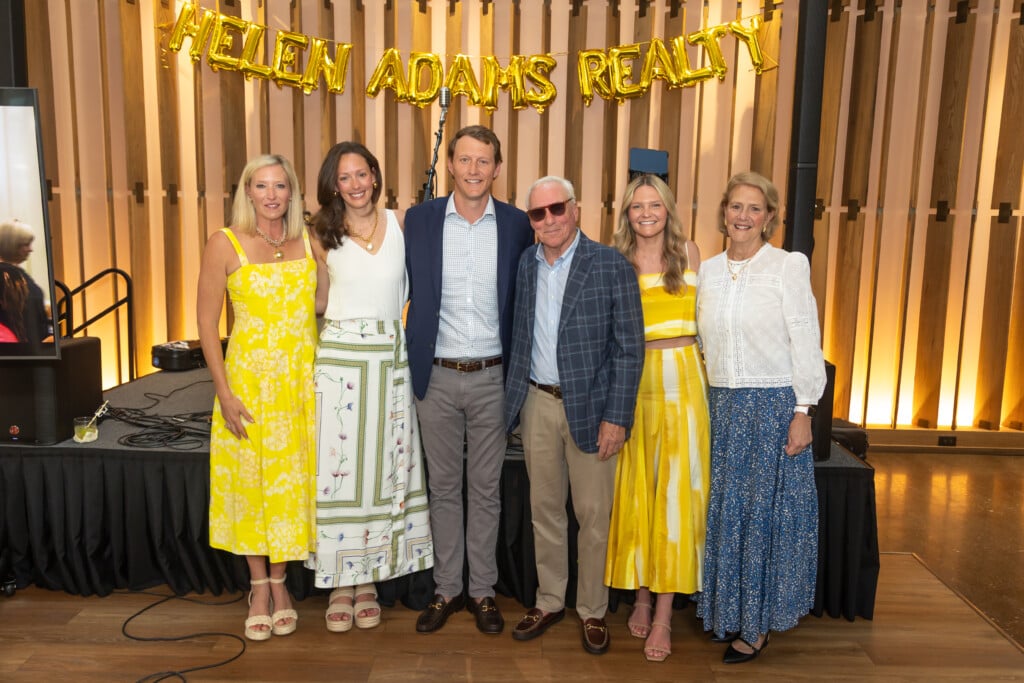Go Jen Go Helps Treat ‘Financial Toxicity’ of Breast Cancer
Bills spike after diagnoses. Go Jen Go eases financial strain so patients can focus on their health

“I thought I’d cry this morning, but there’s too much joy in this room to cry.” A 29-year-old woman watches her kids play with new toys as torn Christmas gift wrap blankets the floor. One girl swaddles a baby doll while her sister sets up a tablet. Their toddler brother insists on wearing his new Spiderman bike helmet. It’s 30 degrees on this early December morning—a cold that sneaks through gaps around the door of their mobile home near Monroe. The kids seem too excited to notice.
In three hours, this mom will begin radiation therapy at Levine Cancer Institute Union West in Matthews. She learned 10 months ago that she had stage 3B breast cancer; soon after, she lost her full-time job at a restaurant that wouldn’t give her time off for chemotherapy. She hugs Jessie Nash, who played Santa that morning, bringing the family gifts and stockings. Jessie is the program manager of Go Jen Go Foundation, a Charlotte-based group that offers financial help to local breast cancer patients. Today, they checked off her kids’ wish lists. “Go Jen Go was the first foundation to answer my call,” the mother tells Jessie. “And you were the only one to keep calling me back.”
Cancer in young adults can look like this: a single mom of three children under 10 who had to choose between her job and life-saving treatments. A nurse navigator referred her to Go Jen Go, which has helped her pay utility bills and rent for nine months, allowing her to get medical care while supporting her family.
Cancer increasingly affects young adults, and when it does, it’s often more aggressive than in older people. Just last year, Go Jen Go had more younger women seeking help than ever. The youngest patient they support is 25.
“Financial toxicity,” the economic devastation that can follow a diagnosis, is a lesser-known side effect of cancer. Between 20% and 30% of breast cancer patients will lose their jobs, which often costs them their health insurance, too. Sometimes, people call Go Jen Go the same day they learn they have cancer. A family can’t grieve a life-threatening diagnosis for a few hours before needing to strategize how to pay for treatments and groceries at once. Even solidly middle-class families can have fortunes reversed within months.
“You can look at what someone’s W-2 was last year and throw it out the window,” says Susan Evren, Go Jen Go’s executive director. “What’s happening now? Is the husband missing a ton of work to help the patient get to appointments? Is that income cut in half?”
When cancer happens to people who are already financially insecure, the situation is worse. Once, Go Jen Go helped a woman who couldn’t afford enough gas to drive from the hospital back to a homeless shelter. (That day, Susan brought her cash and gift cards. Later, the group gave the woman the deposit on an apartment.)
The organization’s namesake, Jen Pagani, was 37 when she learned she had breast cancer. She had supportive family and friends, so she paid their generosity forward by giving gift cards to the women getting chemo beside her. When she learned how many people in that room faced financial distress, she turned acts of kindness into a legacy. In 2014, a few days before she died at 44, she invited a friend over—Jessie—to share her vision for Go Jen Go. It went further than she expected. The group has supported more than 3,000 people in the Charlotte area.
“We help them meet basic living needs so they are able to get through treatment,” Susan says. “You want to take that worry off so they can focus on their health.”
Go Jen Go offers more than money. It offers kindness, sometimes in the form of social events that turn isolated survivors into close friends. Sometimes it takes the form of a surprise Christmas morning, when Jessie plays Santa to kids who have a sick mom. Jessie was 14 when her mom got cancer; she died four years later. She knows what it’s like to be a kid who understands too much about cancer.
“I have this massive hole in my heart,” Jessie says. “But now I have all of these people and stories that help fill it.”
Jessie hugs the family goodbye, then steps outside. Before driving home, she pauses to exhale, smiling widely but with a bit of sadness in her eyes. The hole in Jessie’s heart just filled one story more.






